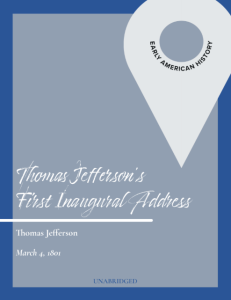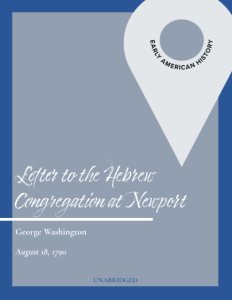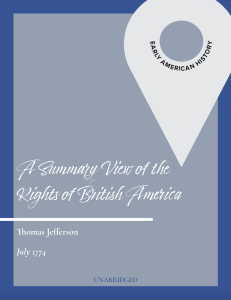
There is an indissoluble union between virtue and happiness.


Capital determines whether a society will be prosperous or poor, well-fed or not, populated by independent and self-reliant citizens or dependent subjects. An abundance of nutritious food, clean water, sturdy homes, safe modes of transportation, reliable sources of heat and power, modern medicines, and many other products and technologies that improve the quality of human life are impossible without capital.
A teacher can help students understand what capital is by encouraging them to think of capital as an individual’s “starter pack” for being productive and getting things done. Capital includes the tools, money, and other valuable resources a person needs to create something of value, or to solve a problem in order to create wealth.
For example, if you wanted to start a lemonade stand, the money you use to buy cups, lemons, water, and a sweetener is capital. While money is an important form of capital, capital can include other resources that help you create wealth for yourself by producing value for others.
Other Kinds of Capital:
Capital is anything you can use to “build” something that will provide experiences of value for other people. Money is the most obvious example of capital, but creativity, friendships, and even your honesty and intelligence, can be just as important, maybe even more important in some circumstances.
So, yes! Capital is cash and more: Capital includes any resource that helps you be more productive. Ask students: What kinds of capital do they have? Maybe it is their energy, ideas, or even their ability to make people laugh. Remind them that everyone—even people with little or no money—have important capital over which each person has much control: A person’s own reputation, honesty, and trustworthiness.
Evaluating incentives
One of the most important questions within any society is: Who will allocate capital? One possibility is that individuals choose whether, how, when, where, and why to spend their own money and invest their own capital. Another option is that political elites within government will tax citizens and confiscate the wealth that others have created, and then those in government will choose how to allocate other people’s their capital.
Individuals choosing how to invest their own capital have strikingly different incentives than politicians and bureaucrats in government spending other people’s money.
As we discuss in another section, profit is the happiness of other people. When individuals and business owners make their own choices about how to allocate and when to invest their own capital, they aim to earn a profit—they want a return on their investment—which is another way of saying they’re trying to make other people happy by producing value for them.
When those in government choose how to spend other people’s money, they serve their own interests, usually by expanding the scope and power of government. That is worth repeating: Business owners allocate their own capital in order to make a profit for themselves by making other people happy; government allocates other people’s capital in order to extend the power and control of government.
Every new government spending program, after all, requires expanding the class of unelected bureaucrats, adding new levels of control over what citizens may do, and adding new kinds of taxpayer-funded government competition to businesses and other private organizations.
Incentives of Allocation
For politicians and bureaucrats, resource allocation often means achieving political ends or aiming for short-term gains. Without direct knowledge of costs or profits, these decisions can be quite unpredictable.
When private individuals choose how to invest or spend their own money, they have strong incentives to make careful, strategic decisions. If they invest wisely, they personally reap the rewards; if they invest foolishly, they suffer the losses. This direct link between decisions and consequences encourages efficiency and accountability. Individuals are motivated to seek the highest return (or best use) for their funds, and they also bear the risk of losing their capital if a project fails.
By contrast, when those in government take capital from citizens through taxation, politicians and bureaucrats end up allocating resources that are not their own. As a result, several distortions can arise:
In short, when individuals allocate their own funds, they have personal incentives—financial risk and reward—to be careful stewards of their capital. When governments collect taxes and decide how to spend them, officials are allocating other people’s funds and often do so under weak or no incentives for efficiency, with less direct accountability for mistakes, and with political or bureaucratic considerations that can overshadow the goal of maximizing societal well-being.
 Nº1
Nº1
Description
Download PDF Download ePub Button 3
The United States was founded, in part, upon the unalienable natural right to pursue happiness. Yet surveys suggest Americans are not very happy. Rates of depression, substance abuse, and suicide have risen steadily—even before the COVID-19 pandemic. Teenage suicides, in particular, are at historic highs.
Why? Perhaps because many Americans no longer know what happiness is, or what it requires. Today it is often assumed there is no objective transcultural meaning happiness, only subjective opinions about it. But what if that assumption is wrong? What if happiness is something real that can be known, at least to some degree, objectively?
We today can benefit — we can become better people, happier people, and better citizens — if only we open our minds to learning what happiness is, take responsibility for our own happiness, and make choices that align with it.
The Declaration of Independence affirms life, liberty, and the pursuit of happiness as unalienable rights, and insists that government exists to secure them. If government becomes destructive of these ends, the people may alter or abolish it in order “to effect their safety and happiness.”
Notably, happiness appears twice in that famous document.
It is a mistake to think the Founders viewed happiness in modern, relativistic terms. Many today assume there are no moral truths applicable to all people, only shifting preferences. But the Founders, like Aristotle, rejected this. Their view was that happiness is more than (and often different from) whatever feels good in the moment.
In a song from 1996, Sheryl Crow sang, “If it makes you happy, then why the hell are you so sad?” Aristotle and Washington would answer: if your choices result in misery, you’ve likely misunderstood what happiness is and what it requires.
In his First Inaugural Address, George Washington explained: “There is no truth more thoroughly established than that there exists in the economy and course of nature an indissoluble union between virtue and happiness.” Happiness requires virtue; the pursuit of happiness is the pursuit of virtue. A person must be good if he wants to be happy.
Washington was sharing ancient wisdom with his fellow citizens. The clearest statement of that wisdom is Aristotle’s Nicomachean Ethics.
Aristotle opens, on the first page, by observing: “Every art and every inquiry, and likewise every action and choice, seem to aim at some good, and hence it has been beautifully said that the good is that at which all things aim.”
Aristotle goes on to explain there is a hierarchy among our choices, and the purposes or ends our choices are intended to achieve. Consider the ordinary practice of setting an alarm clock before going to bed. You choose to set your alarm not because you enjoy setting the alarm or hearing the alarm sound. Rather, you set your alarm for the higher purpose—the higher end—of waking up on time the next morning.
You want to wake on time for even higher purposes, or ends: You want to get to work or school on time, or arrive at the airport in time to catch your flight. Even those purposes are chosen for yet higher purposes, ends: You want to get to work on time so that you can get a raise; you want a raise so you can buy a better car or house, or have more options in life, etc.
The question to which Aristotle directs our attention is: Is there a purpose, or an end, or some good that we choose never for the sake of something else, or something higher, but always for its own sake? Among many human purposes, ends, and goods, is there one that is highest toward which all our choices ultimately aim?
He answers, yes, there is: Happiness. In the original Greek, the word is eudaimonia, from which we get English derivatives such as “euphoria.” While eudaimonia has been translated as “happiness” in modern English, the original word meant much more than mere fleeting feelings and emotions.
Eudaimonia is the goal at which all human choices aim. It is the ultimate purpose, the ultimate good that human beings desire, never to satisfy other desires, never for other or higher purposes. Eudaimonia means happiness in the deep philosophic sense of a life lived well in every respect—a person who looks back at his life and has no regrets because in every instance he chose wisely and exercised all the other virtues connected to wisdom.
The next question, then, is: What does it mean to live well? Or, what is human excellence? Investigating these questions leads Aristotle to a lengthy discussion of the various virtues, including physical virtues (or excellences), moral virtues (or excellences), and intellectual virtues (or excellences).
Aristotle emphasizes that happiness (eudaimonia) requires not merely knowing what the virtues are, but actually doing them. Further, happiness requires exercising the virtues not once in awhile, or occasionally, but over and over, until it becomes a habit, a way of life, continuing throughout one’s life, until death. To use his example, just as one warm day does not make a summer, one act of virtue does not make a virtuous, happy person.
We start to see that the classical teaching regarding happiness (eudaimonia) is a high and challenging goal to achieve. The happy person is the person who, at the end of his life, has been consistently courageous, wise, just, and moderate. The happy person is one who is caring and generous to friends, who has treated enemies in ways that are fitting and just, and has cultivated relationships with others who want to help each other learn, understand, and be better human beings.
The person whose life can rightfully and accurately be described as happy is someone who is never petty, who is always big-souled, who works to improve the things he can improve, and who suffers well when afflicted with suffering beyond one’s control, rather than the opposite.
By contrast, the modern tendency is to equate happiness with immediate pleasure or momentary satisfaction—doing whatever feels good here and now. This trivializes the pursuit of happiness and makes Aristotle’s account seem alien or oppressive. Yet the evidence of widespread despair in modern America suggests modern assumptions regarding happiness are incomplete, or altogether wrong.
Washington thought it urgent to remind Americans that virtue and happiness are bound together by human nature, just as Aristotle demonstrated two millennia ago. He was right.
Summary: The classical teaching is demanding: to be happy, one must live virtuously. Aristotle, Washington, and the Founders alike insisted there is no real happiness apart from moral excellence. If we wish to enjoy our unalienable right to pursue happiness, we must learn again that virtue is the path to human flourishing.


